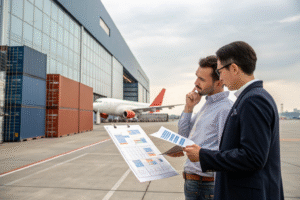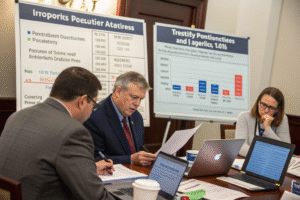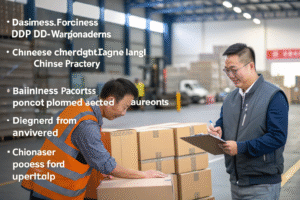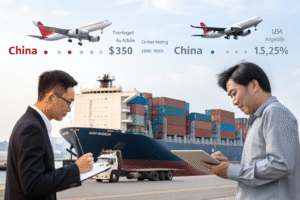As Cambodian import duties increase, exporters—especially those shipping from China to the U.S. via Cambodia—face unexpected cost pressures. This can significantly affect margin-sensitive industries like apparel and giftware. Without proactive measures, your supply chain may become vulnerable to higher landed costs and customs delays.
Cambodia's import duty hike is a wake-up call for exporters. To stay competitive, smart buyers must adjust their logistics, trade terms, and documentation to maintain cost efficiency and customs compliance.
This article breaks down exactly how U.S.-bound exporters—like our clients at GeeseCargo—can optimize shipping strategies in light of Cambodia’s new tariffs. With years of experience across Asian ports, we’ll help you stay ahead of rising costs and avoid shipment disruptions.
How Will Cambodia’s New Import Duties Affect You?
When new duty rates emerge, it can disrupt long-established cost structures.
Cambodia’s newly raised import duties primarily affect re-export strategies, where Chinese goods enter Cambodia before continuing to third countries like the U.S.
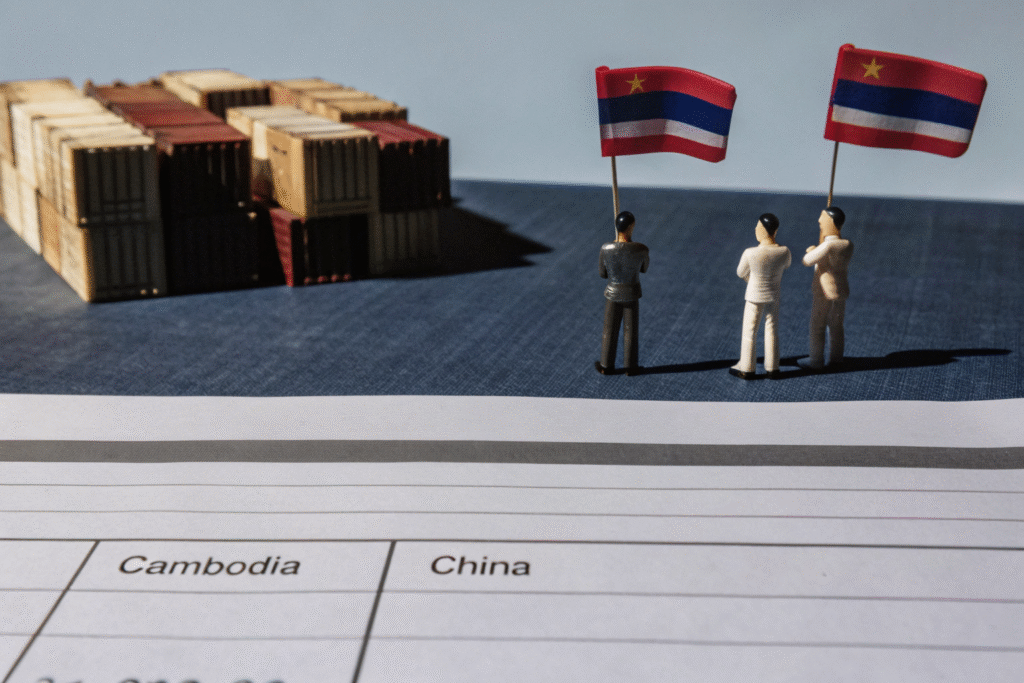
Are You Using Cambodia for Transshipment?
If you're using Cambodia as a transshipment point to avoid higher direct tariffs, the new duties may offset any savings. Many exporters move finished goods—like clothing or electronics—through Cambodian Free Trade Zones for labeling or minor processing before final delivery. With duties now targeting this flow, it could end up more expensive than direct shipping from China.
Explore Cambodia's updated tariff schedule to reassess your strategy. Also, review ASEAN-China trade rules for alternative options.
Will Your Commodity Classification Be Impacted?
Cambodia’s duties are often HS-code specific, so your classification could directly change your cost base. Apparel, accessories, and plastic gift items are reportedly affected the most. Recheck your HS codes with Cambodian customs and ask your freight forwarder for an updated tariff line review.
You can use tools like World Tariff and consult WTO Cambodia data to validate classification risks.
What Are the Alternatives to Cambodian Transshipment?
Cambodia isn’t the only transit or reprocessing point in Asia.
Exporters concerned about Cambodia’s new import duties should evaluate direct shipping, bonded zones in Vietnam or Malaysia, or adjust Incoterms to avoid passing tax costs to buyers.

Can You Switch to Direct Shipping From China?
For many brands, especially those already manufacturing in China, direct DDP shipping (Delivered Duty Paid) from ports like Ningbo, Shenzhen, or Qingdao may now be more cost-efficient than indirect transshipment via Cambodia.
Explore DDP logistics through experienced providers like GeeseCargo who understand how to optimize customs clearance and last-mile delivery. Also look into DDP rate calculators on platforms like Freightos for comparison.
Should You Use Bonded Warehouses in Vietnam or Malaysia?
Vietnamese and Malaysian bonded zones may offer better tariff treatment and compliance when minor product modifications are required. If your goods need relabeling or packaging, use bonded warehouses instead of full re-import into Cambodian customs territory.
Consider VSIP parks in Vietnam or Port Klang Free Zone in Malaysia as viable options for regional processing and distribution hubs.
How Can Freight Forwarders Help You Avoid Extra Costs?
We freight forwarders aren’t just shipping vendors—we’re your cost control partners.
By choosing an experienced freight forwarder, exporters can forecast changes, access better rates, switch routes, and maintain compliance—all of which help mitigate the impact of Cambodia’s rising duties.
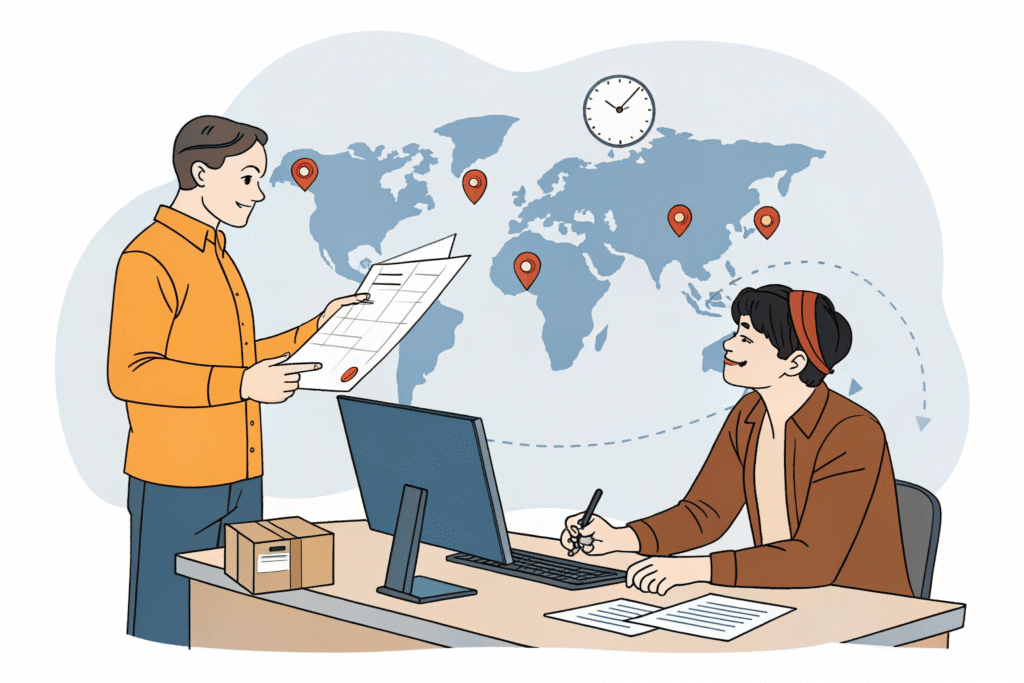
Can a Freight Forwarder Offer a Duty Impact Analysis?
Yes. A reliable forwarder can provide a pre-shipment cost breakdown that includes Cambodian import duty exposure. Tools like landed cost calculators, route-based forecasting, and customs clearance simulations can help buyers compare alternatives.
You might find these tools on platforms like GoComet or request direct consultations from GeeseCargo for personalized logistics advice.
Will Freight Forwarders Suggest Route Optimization?
Certainly. We help many buyers reroute their cargo through safer, duty-free, or bonded alternatives. Some shift to rail freight through Chongqing to Europe, while others prefer FCA or FOB terms to maintain flexibility.
We also use real-time tracking systems like Project44 to monitor performance, delay risks, and port bottlenecks.
What Compliance Documents Should You Prepare in Advance?
Customs documentation errors now carry more cost than ever.
To save costs under new import regimes, exporters must align documentation with real transaction values, country-of-origin proof, and proper HS classification.
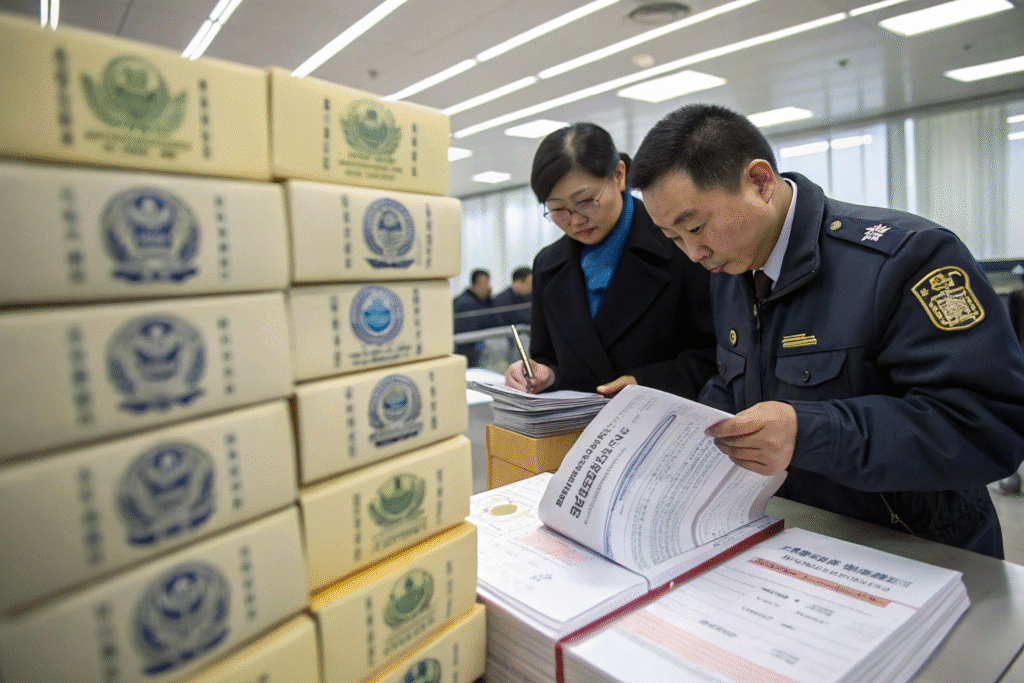
Do You Have Proper Certificates of Origin?
Certificates of Origin (COO) must match ASEAN rules or Free Trade Agreement terms. Without proper documentation, Cambodian customs will apply MFN rates, which are often higher. Ensure you're not using generic COs that lack processing value proofs.
Explore templates and requirements from the International Trade Centre or use Alibaba’s export documentation services.
Is Your Customs Invoice Aligned with HS Code Adjustments?
Your invoice must clearly define the HS code, country of origin, declared value, and any intermediary handling locations. Misaligned invoices trigger audits and reclassification in Cambodia’s tighter regime.
Use tools like TradeMap to double-check export data and get WCO HS Explanatory Notes for compliance.
Conclusion
Rising import duties in Cambodia are a reminder that cost control starts with proactive logistics and compliance planning. Exporters shipping through Cambodia must reassess their strategies before tariffs erode margins.
Whether it’s switching to direct DDP shipping from China, using bonded alternatives, or tightening up your customs documentation, we at GeeseCargo are here to help you make the right decisions. With deep relationships across Asian ports and decades of freight experience, we are your reliable partner through supply chain turbulence.
For tailored freight solutions or a route audit based on your latest shipments, feel free to contact Ben Zhu at benzhu@geesecargo.com today.

